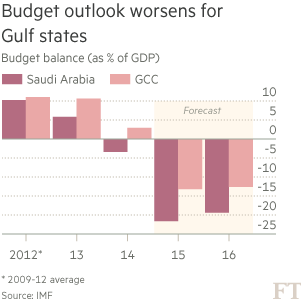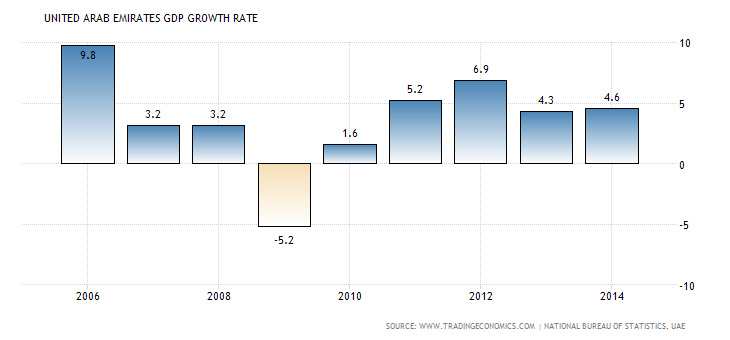Summary/executive summary
Businesses operating across international borders are exposed to more risks relative to those operating within the border limits of a single country. However, globalization has resulted in more businesses operating in more than one country.
It is of paramount importance for multinationals to carry out country risk analyses before making trading or investment decisions outside their countries of origin.
Nestle is a multinational company that produces bottled water, among other products. Nestle wishes to expand its portfolio in emerging markets by expanding sales and manufacturing processes of bottled water.
This report makes a PESTLE analysis of UAE country risks. The analysis is aimed at informing Nestle’s decision on the manufacturing and sale of its bottled water product in the UAE.
Firm-specific risks
Nestle’s firm is less likely to be involved in any goal conflicts with the UAE government. As such, firm-specific risks are minimal.
Country-specific risks
Islam religion predominantly influences the UAE’s culture. Additionally, there are minimal institutional risks that are likely to affect Nestle.
Global specific risks
The geographical location of the UAE exposes it to heightened terrorism risks. Additionally, there are risks associated with global drives for environmental conservations.
Why country risks analysis is important
In exploiting new opportunities, many firms choose to put parts of their portfolio across national boundaries. However, crossing country boundaries exposes international businesses to diverse countries’ risks (Khattab et al., 2010).
It is of paramount importance for foreign investors to start the processes of overseas businesses by evaluating risk factors in the countries’ environments. As such, country risks should be given formal treatments as prerequisites to the making of strategic investment decisions, protecting business continuity, and enhancing firms’ security. Additionally, country risk analyses enable firms to scan legal environments and understand potential legal liabilities.
Political risk factors in the UAE
Government stability
UAE is among the most stable governments in the Middle East region. It is forecasted that the government will remain stable for several years. Although there is a high likelihood of power transfer shortly, the exercise is expected to be seamless. The UAE is a constitutional monarchy and, therefore, it is expected that the crown prince will smoothly take power from the current ailing ruler.
Tax policies
It is worth noting that the UAE has entered into double tax treaties with more than 70 countries. The treaties are aimed at reducing taxations for multinationals extending their manufacturing and sales in the UAE.
Additionally, there are more than 40 Free Trade Zones in the UAE, where foreign ownership and management of corporations are 100%.
Economic factors
The UAE’s economy has previously depended on hydrocarbons to get revenues for major government projects. As such, the fall in oil prices has highly affected the UAE’s GDP. Experts predict that the weak UAE’s GDP will be prolonged for several years (The Economist Group, 2016).
Global indexing categorizes the UAE economy as an emerging market with a high potential for growth. The 2013 ranking put the UAE as a destination for global investors. (The Economist Group, 2016)
According to experts, the disposable income of Emiratis is likely to have a boost in the future while the inflation levels are expected to go down. Additionally, economic diversification and the use of accumulated buffers are expected to subdue inflation while increasing credit accessibility to investors in non-oil sectors.
The UAE credit rating has been stable, and a positive trend is projected. A recent study rated the UAE at Aa2 (Trading Economics, 2016). As such, the UAE is relatively creditworthy. The rating has strong impacts on the country’s borrowing costs (The Economist Group, 2016).
Social factors
Luxurious lifestyles characterize the Emirati society, where owning lavish products reflect people’s personality, social image, and social positions. Family members and peers influence personal purchase decisions.
It is worth noting that equity in wealth distribution is yet to be achieved since the ruling family and a few business people control most of the UAE’s wealth.
The number of Emiratis seeking higher education is on a steady increase. Additionally, the UAE government continues to make higher education accessible. As such, recent developments in the education sector are apparent in social transformation (Mahani & Arman Molki, 2011).
Expatriate workers in the UAE are a major concern in national identity and social demographics. According to recent surveys, foreign workers make a considerable contribution to the UAE’s national workforce and consequently result in disproportionate population demographics. As such, labour markets are likely to be subjected to new regulations aimed at regaining national identity (Al-Khouri, n.d.).
Technological factors
Technological factors are key players in the running of the business in the UAE (Al-Ansaari et al., 2015). It is worth noting that the UAE is a major importer of new technological devices, and it adopts discoveries and innovations. Globally, technologies are dynamic and, consequently, some gadgets become obsolete relatively fast.
Legal regulatory
The sharia laws predominantly inform business laws and regulations in the UAE (Cerimagic, 2010). Expatriates and non-Muslims must respect Islam. For instance, they should desist from blasphemy against Islam. Additionally, unearned income, taking food/drinks and smoking (in the presence of Muslims) should be avoided during Ramadan. Also, restaurants remain closed during the daytime in Ramadan.
However, it is worth noting that freedom of worship is guaranteed in the UAE constitution. Non-Muslims are not obligated to practise Islam and are not obligated to fast during Ramadan. Additionally, the UAE is against extremism/radicalization, and tolerant worldviews are adopted.
Nonetheless, it is worth noting that controversial issues like sexual orientation may have adverse implications on foreigners, including possible arrests and prosecutions (Williams, 2014).
Business regulation’ in the UAE is made in transparent and corruption-free manners. For instance, licenses are publicly available and are readily provided to qualified applicants (Baker, 2014).
Environmental factors
There is an increasing global awareness of environmental issues that are gradually changing consumers’ and producers’ attitudes (Cherian & Jacob, 2012). In the UAE, environmental awareness is gradually getting widespread, especially among consumers. As such, consumers are actively striving to reduce their impact on the environment.
Corporates, therefore, should ensure that they embrace green marketing and environmentally friendly production. Additionally, social responsibilities are a prerequisite for the success of multinationals in the UAE.
Assessment of risk factors
Micro and macro risks assessment
Several factors will affect the sale and production of Nestle’s bottled water. From the PESTLE analysis above, it is clear that Nestle needs to be conversant with the UAE risks.
Importance of the UAE risk to Nestle bottled water
The UAE political environment is more likely to boost the operation of Nestle. The relatively peaceful transitions of power suggest that businesses in the country are less likely to be affected by violence associated with unsmooth transitions of governance. For economic factors, the UAE is a viable destiny for Nestle to expand its portfolio. The UAE’s GDP is growing and, therefore, the purchasing power of Emiratis is likely to improve.
Social factors in the UAE are pertinent and vital in the sale and production of Nestle’s bottled water. Most of the Emiratis are moving from consuming tap water to bottled water. The shift from consumption of tap water to bottled water could be linked to both lifestyle changes and the need for consuming unpolluted water.
Technological factors are likely to affect the distribution, production, and advertising of Nestle’s bottled water.
Legal factors will affect the sale and production of Nestle’s bottled water. It is imperative to note that Nestle’s bottled water as a product meets most of the requirements aligned with the UAE’s Sharia legislation framework. Nestle can work with Islamic regulators to attain Halal certifications to appeal to all Muslim consumers. Additionally, Nestle will have to be conversant with Sharia laws, especially regarding employment and Islam calendar.
Measures the UAE can use to minimize the risk factors
First, the UAE government should get into more multilateral agreements that will enhance the stability and growth of international investments and international trade in line with the globalization trends. Additionally, the government should strongly persist in condemning extremist philosophies that pose great risks to multinationals. Third, the UAE government should emphasize more diversifications of the economy to protect the GDP and consumer purchasing powers.
Fourth, the more than 50 per cent ownership policy of firm ownership outside Free Trade Zones should be reviewed to enhance more penetration of MNEs.
Steps the UAE government has taken to protect the industry
The UAE government has actively participated in processes geared toward protecting industries. Some of the outstanding steps include protecting expatriate workers, environmental conservation, augmenting Emiratis’ education/training, tax regulations and regulating competitions.
Current policy as well as a change to the policy to protect the industry from such risks
The UAE’s trade policy protects industries to foster GDP and economic growth. The policy strives to strengthen transparency while augmenting constructive corporations with other countries (UAE Interact, 2010). The policy, however, protects local investors more than foreign traders. For instance, there are somewhat deterring obstacles that prevent foreign investments. More than 50 per cent of local ownership should be reviewed, and more deliberations put in place to protect foreign investments (Baker, 2014).
Conclusion
It is of paramount importance for multinational firms to carry out risk analyses of the different countries they intend to operate. As such, country risk analyses should inform investment decisions.
This paper has analyzed the UAE’s country risks to inform an investment and trading decision for a multinational company. Precisely, the paper has discussed risk factors that are likely to affect the production and sale of Nestle’s bottled water in the UAE.
The UAE’s PESTLE analysis has revealed that Nestle is likely to be influenced by several risk factors.
Suggestions
It is suggested that Nestle should proceed with the plan to manufacture and sell bottled water in the UAE. The company, however, needs to be conversant with the UAE’s PESTLE analysis and pay pertinent attention to each aspect.
References
Al-Ansaari, Y., Bederr, H. & Chen, C., 2015. “Strategic Orientation and Business Performance: An empirical study in the UAE context”, Management Decision, 53(10), pp. 2287 – 2302. Web.
Al-Khouri, A. M., n.d. “Population Growth and Government Modernisation Efforts”, International Journal of Research in Management & Technology, pp. 1-8. Web.
Baker, J., 2014. Department of State: 2014 Investment Climate Statement. Web.
Cerimagic, S., 2010. “The Effects of Islamic law on Business Practices,” Contemporary Middle Eastern Issues, 3(1), pp. 44-47. Web.
Cherian, J. & Jacob, J., 2012. “Green Marketing: A Study of Consumers’ Attitude towards Environment-Friendly Products,” Asian Social Science, 8(12), pp. 118-126. Web.
Khattab, A. A., Aldehayyat, J. & Stein, W., 2010. “Informing Country Risk Assessment in International Business,” International Journal of Business and Management Vol. 5, No. 7; 5(7), pp. 55-62. Web.
Mahani, S. & Arman Molki, 2011. “Internationalization Of Higher Education: A Reflection On Success And Failures Among Foreign Universities In The United Arab Emirates” Journal of International Education Research, 7(3), pp. 1-8. Web.
The Economist Group, 2016. The United Arab Emirates. Web.
Trading Economics, 2016. United Arab Emirates Credit Rating. Web.
UAE Interact, 2010. Ministry of Foreign Trade issues the UAE Trade Policy Review. Web.
Williams, K., 2014. How can Multinational Companies Implement Global Diversity Policies Consistently?. Web.
Appendices

